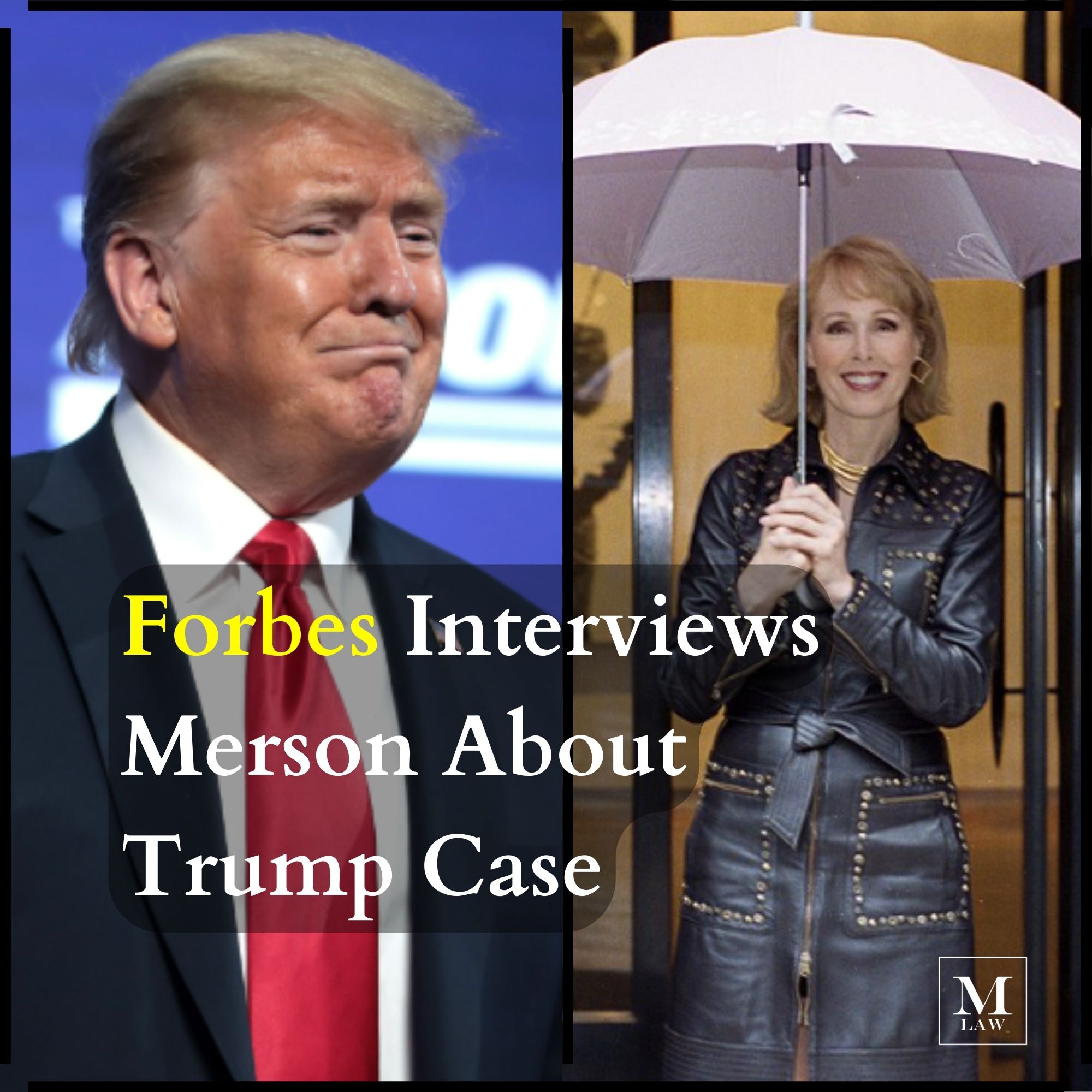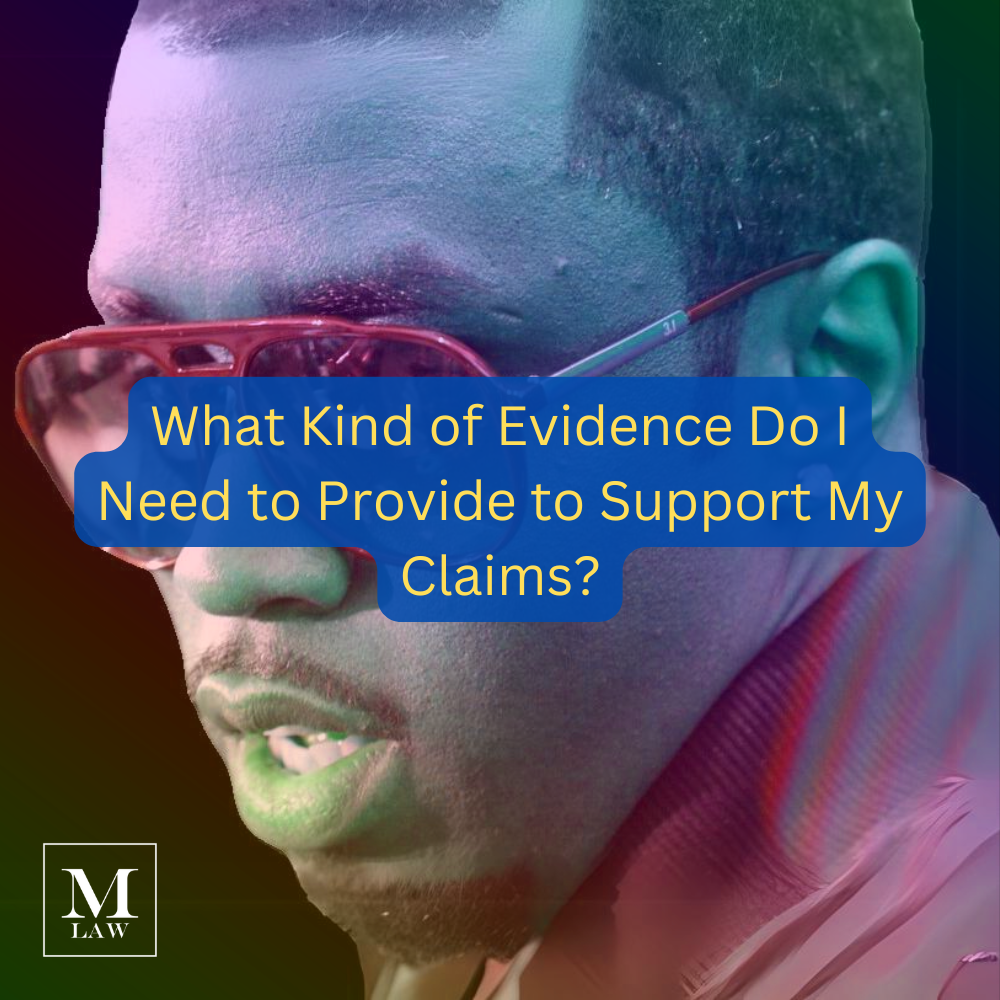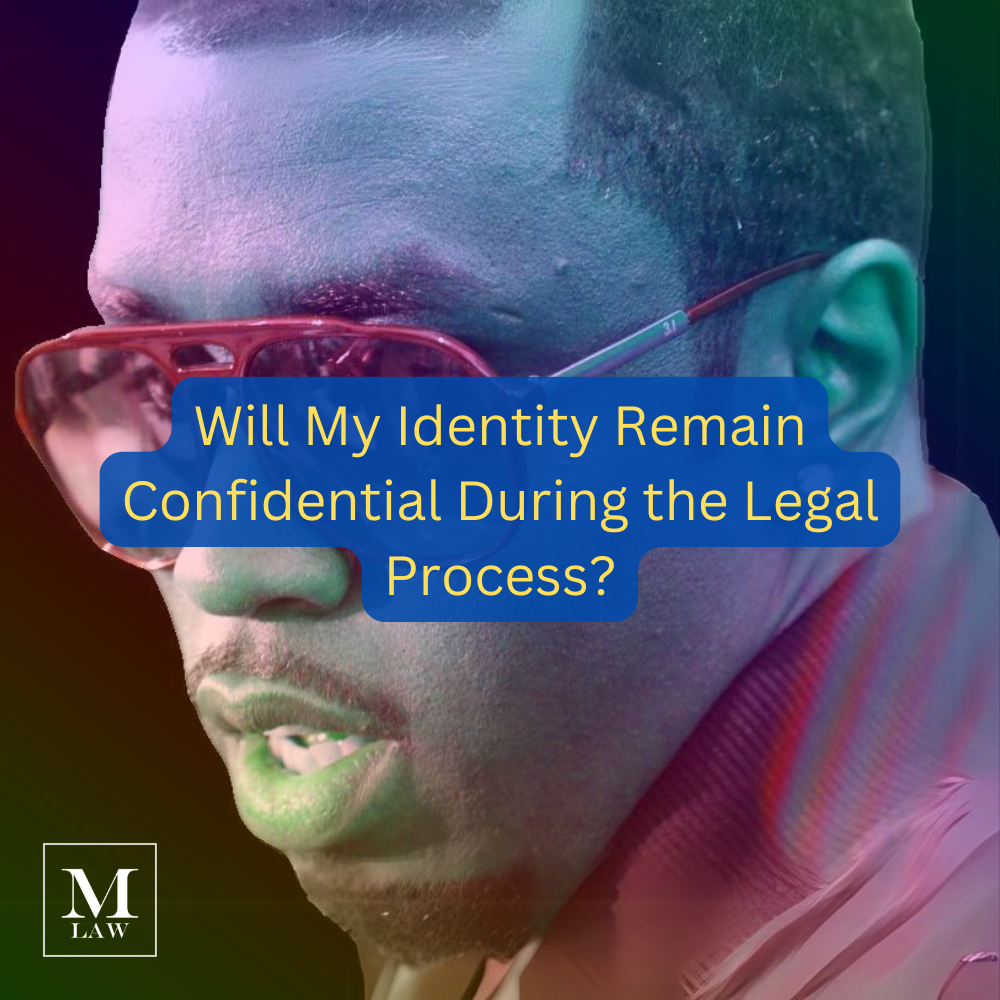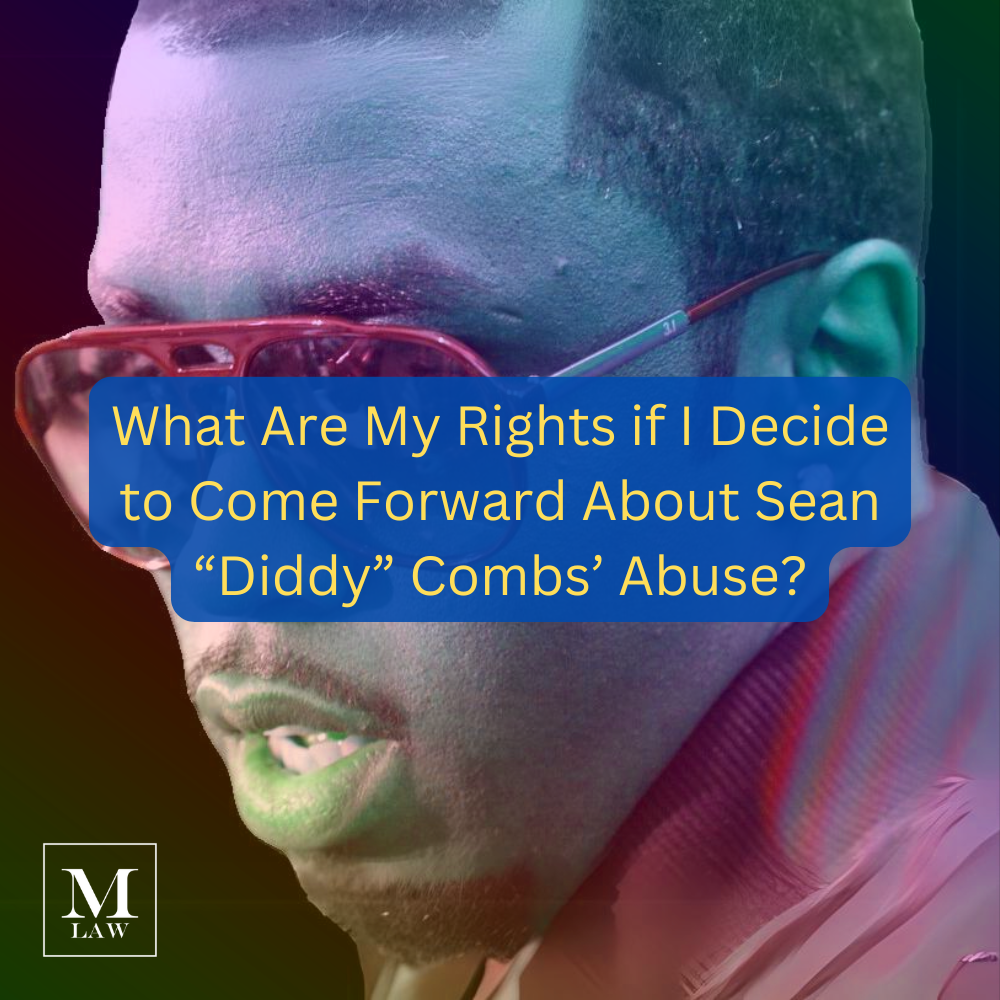Read Video Transcript:
Diane Brady: Hi everybody, I’m Diane Brady. I’m here with Jordan Merson, a prominent New York attorney who has represented women, I guess Jordan, in a number of high-profile cases – Bill Cosby, Harvey Weinstein, Larry Nassar. Welcome, we’re now talking about the Donald Trump case that is currently before the courts, let’s just say, is this a case you would have taken on if the victims had come to you?
Jordan Merson: Well, I mean, when a case comes into my office what’s important in these cases is that you have, what we call corroboration so that it’s not just he said again she said. So, you know, in this case, it appears Ms. Carroll actually has pretty good corroboration. So I can’t replicate what would have happened if she would have called in and we would have had a chance to meet with her but it would have been a case that, given the corroboration that she does have, we would have been very interested in.
Diane Brady: You know, we’ve certainly heard her testimony and we’ve heard it prior to of course this particular court date, talk about the New York Law this retroactive law, there’s a very brief window in which these cases are coming forward, is that correct? It’s going to close at the end of this year?
Jordan Merson: Yeah, so on the heels of the Child Victims’ Act which had a one-year window for any sexual abuse survivors to come forward, regardless of when it occurred. So we’ve represented victims who were sexually abused in 1940s, 1950s. That window was one year, it actually was extended to a second year because of the Covid pandemic. Now there is the Adult Survivors’ Act which as of, which runs through November, late November of this year, and allows adult survivors, those who were 18 and over when they were sexually abused, to come forward and file a civil lawsuit, and these, and it doesn’t matter when it was, the statute of limitations is not an applicable affirmative defense in these cases.
Diane Brady: Now, they’re allowed to file the cases but of course that that whole statute of limitations and how long ago some of these alleged, you know, incidents took place, is that factoring into the kinds of judgments that we’re seeing? You know I’m not just we can look at what President Trump might face, but in your experience if something happened 20, 30, 40 years ago, are juries as likely to give significant awards to victims?
Jordan Merson: I would say yes because, I mean, I think a jury will assess the credibility of both parties in this case, but here you have more than just he said she said. Ms. Carroll has, is apparently putting forward two witnesses who she said she told, pretty contemporaneous to the events taking place. That’s, that’s pretty significant corroboration for a civil lawsuit. As well as the, Judge Kaplan is allowing two other witnesses who had, you know, who claimed to have had similar experiences with Mr. Trump. As well as the, you know, the incident that he had on with Access Hollywood. So there’s a fair amount of evidence in this case in addition to, you know, just Ms. Carroll’s testimony.
Diane Brady: So, what kind of penalties realistically, is somebody in this type of situation likely to face in New York State?
Jordan Merson: Well, if the jury finds that Ms. Carroll is credible and believes that this incident happened, you know, and finds that she was damaged as a result of the rape that she says occurred, they could award millions, millions, and millions of dollars, and in addition, you also have the defamation claim. So if the jury finds that this incident happened and then finds that Mr. Trump disparaged Ms. Carroll, they could award an additional amount on top of the amount for the harm caused by the sexual assault.
Diane Brady: How often is defamation also included in this kind of case, because you know obviously people come, they deny it, they say things, is this unusual?
Jordan Merson: It is, I mean most defendants don’t have the access to media that Mr. Trump does, and most of the time, you know, defendants don’t come out like Mr. Trump did in this case. So it’s pretty unusual, I wouldn’t say it never happens but it is it’s fairly unusual and it’ll just add a layer of, you know, insult to injury and potentially significant damages onto any damages award that a jury chooses to, chooses to have here.
Diane Brady: In your experience, is it common for a defendant to not testify on their behalf in these cases?
Jordan Merson: I would say it’s slightly unusual, I don’t want to say it never happens, but it’s pretty difficult to assess the corroboration of someone or the credibility of someone who never takes the stand. So, you know, my understanding of it, and I’ve been following it pretty closely, I was, you know, I’ve been reading up on it, I was down at the courthouse yesterday, but my understanding of it is that that decision hasn’t been conclusively made but it wouldn’t surprise me if Mr. Trump decided not to testify because most people don’t want to testify, especially defendants. But it, you know, it’s a risk because the jury is hearing from one side what happened, and Mr. Trump’s legal team is going to have opportunity, of course, to cross-examine which, you know, is what’s happening now to try to punch holes in the story and, you know, create as much doubt about her credibility as they can. But at the end of the day, it would probably, you would think, be helpful to hear from Mr. Trump and I think that a jury is going to, you know, potentially think to themselves well, where is he?
Diane Brady: Given what’s happened this year with the number of cases coming forward, do you think it’s likely that this, again brief window, that this could be extended or should it be extended because the statute of limitations exists for a reason?
Jordan Merson: Well I mean, what I would say is the window is extended for child victims act cases because of Covid. I think that with respect to children who are sexually abused, it is so hard for them to come forward and there’s usually such a difficult power dynamic. You know, when you have a religious member of a clergy versus a, you know, a young child or whatever the case may be, you have a powerful business person against, it’s so hard for them to come forward that they have to be really established in life. That’s what the research has found, that the average age of someone who comes forward is 52 years old. So, you know, in terms of there being a statute limitations for child victims, I don’t think there should be one, period. And there are states that don’t have any statute limitations and are looking into, and other states are considering that as well.
Diane Brady: What about for adults, like E. Jean Carroll was an adult when this took place?
Jordan Merson: Yeah, I think the window really remedies a wrong that was in New York Law. You know, you have to understand that at the time this incident she says took place, the statute of limitations was one year – one year. The statute of limitations for breach of contract is six years, so that means if someone doesn’t do what they’re supposed to do in business you can have up to six years if there’s a breach of contract claim to pursue a claim. So I think the window is really well founded, I think it really addresses a wrong that was in the law for a very long time and, you know, we fully support it.
Diane Brady: Let me ask because you’ve taken on such high profile cases like mentioned Harvey Weinstein, Larry Nasser, Jeffrey Epstein, does the prominence of the defendant make a marked difference in terms of the reaction of the jury and the likelihood that justice will be served to either side.
Jordan Merson: I mean, I think at the end of the day a jury is going to make a decision based on the evidence in this case. You know, was it probably harder to do voir dire (the questioning of potential jurors to determine their suitability to serve on a jury) than it normally is? Sure. Do people have strong feelings about Mr. Trump? Sure. Do people probably have strong feelings about this case even before they got there? But Judge Kaplan knows what he’s doing. He’s a very experienced judge and I’m sure he, you know, did his best to try to make sure that the jury was fair and impartial, you know, but could you have a jury think that you know, that Ms. Carroll’s just doing this because of who Mr. Trump is? Sure. Could you have, you know, conversely a jury think that Mr. Trump would do something like this because of who he is? So, you know, the fact that Mr. Trump is so high profile definitely adds a layer to this. But, you know, I believe at the end of the day a jury’s gonna weigh how Ms. Carroll does on the witness stand, weigh all of her other evidence, weigh any of the evidence that Mr. Trump’s team has, and make a decision about whether they think this actually happened and how Ms. Carroll has been injured and the amount of money that that is worth.
Diane Brady: Another question which is regard to the Zeitgeist and in your experience has the attitude shifted not just toward, you know, sexual assault and me too and this being a crime, but some people have said that, you know, cancel culture has gone too far, what are you sensing yourself in terms of what you’re seeing in the courtroom, what you’re seeing in terms of the reaction around the cases that that you’re bringing forward. Has the attitude shifted in one way or the other?
Jordan Merson: I mean look, I think people that have legitimate cases, they have been, you know, received welcome from the, you know, the legal community. I mean, these are cases that are important to bring forward not just because of the, you know, potential monetary award, but because when you bring these cases forward you could out predators. It helps other people come forward who have also been victimized. There’s also a spiritual component and a healing component when you have someone come forward and have their day in court. So we’ve had situations before where someone will testify and they feel that a huge weight has been lifted off their shoulders. I mean these are things that have been internalized in for 20, 30, 40 years that they’ve had to live with that, you know, Ms. Carroll’s reported that you know, she’ll be in the middle of doing something else and she’ll think of what happened to her. So, I think there’s a lot of benefit for survivors coming forward and I think the legal community, here in New York, has welcomed those who are strong enough to stand up for themselves.
Diane Brady: I want to go back to the defamation quickly which is, does that help or hurt, I mean you, if that can be a distraction from the main case or it can be something that bolsters it, have you ever deployed, you know, included defamation is it a mistake or a good strategy in this case?
Jordan Merson: I think it’s a good strategy in this case because I think if the jury believes that this happened I think it will just add a layer of, you know, potential damages and if they believe it happened I think a jury would be more, you know, unhappy with Mr. Trump and upset with him that he would go out and say these things. I mean even his own lawyer yesterday was reprimanded by the judge because Trump was still posting about this case and, you know, I think his legal team has done a good job in this case but you could tell that that was a source of, you know, frustration for them because, you know, making these posts it can certainly inflame a jury, you know, and here you have the part of the defamation claim, so those comments, not the ones from yesterday, but the ones he made that are part of the case, like that is potentially actionable so, you know, there’s, you know, people really don’t like victim shaming and victim bullying. And again if this had, if the jury finds for Ms. Carroll, I think you’re going to be looking at a very significant award.
Diane Brady: Great. Any other thoughts as to what you’re looking for? Do things seem to be, if you were the lawyer in this case, sounds like you would be feeling fairly confident at this point? It’s hard to predict but…
Jordan Merson: Yeah, I think, you know, looking at the evidence I haven’t heard anything about what Mr. Trump’s team has, but from where I’m sitting I hope they have something pretty good because so far all the evidence I’ve seen seems to be on Ms. Carroll’s side. The only thing I’ve seen on Mr. Trump’s side is a denial and he’s not taking the stand, it appears. So, you know, I, you know, he’s got a, Mr. Trump’s got a great legal team. I’m sure they have some strategy or plan but so far, you know, it seems things are in Ms. Carroll’s favor. I’ll just say that.
Diane Brady: Great. Well thank you for your perspective Jordan, and I look forward to continuing the conversation. Thanks for joining us.
Jordan Merson: Thank you.







